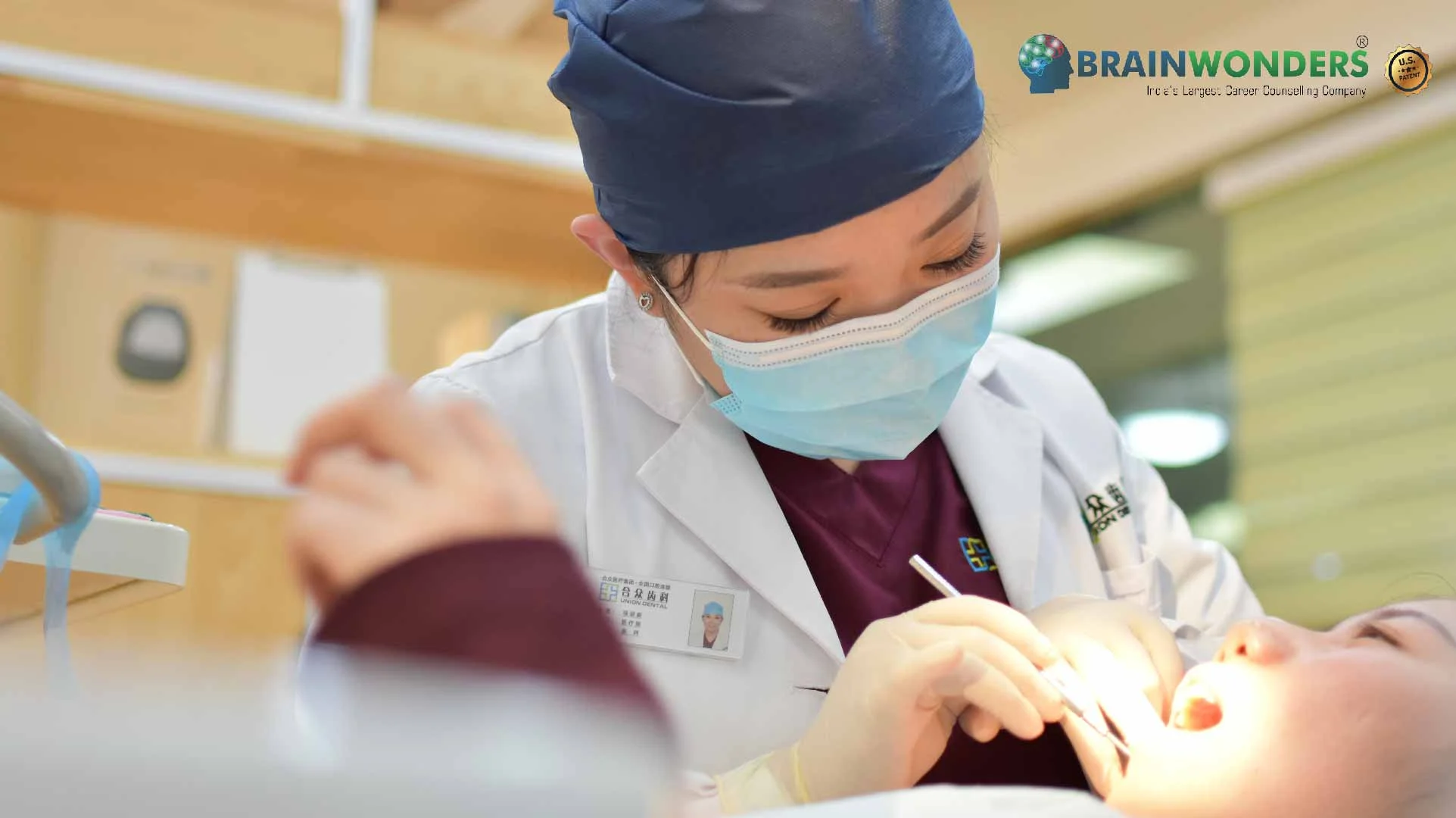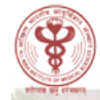How to become an Oral and Maxillofacial Surgeon
Overview, Courses, Exam, Colleges, Pathways, Salary

Overview
Who is Oral and Maxillofacial Surgeon ?
An Oral and Maxillofacial Surgeon is a specialized dental professional who diagnoses and treats conditions affecting the mouth, jaw, face, and neck. They undergo extensive training in both dentistry and medicine to provide comprehensive care for a wide range of oral and facial issues.
Oral and Maxillofacial Surgeons perform various surgical procedures, including dental extractions, wisdom tooth removal, dental implant placement, jaw realignment surgery, corrective jaw surgery, facial trauma reconstruction, and treatment of oral diseases and infections. They work closely with other healthcare professionals, such as dentists, orthodontists, and medical specialists, to provide coordinated and multidisciplinary care.
Oral and Maxillofacial Surgeons are crucial in improving their patient's oral health, facial aesthetics, and overall quality of life.
Typical day at work
What does Oral and Maxillofacial Surgeon do?
- Surgical Procedures: Oral and Maxillofacial Surgeons perform various surgical procedures, such as dental extractions, removal of impacted wisdom teeth, placement of dental implants, and orthognathic surgery (corrective jaw surgery). They also treat facial trauma, reconstructive surgery for facial deformities, and perform cleft lip and palate repair procedures.
- Dental Implants: These surgeons specialize in the placement of dental implants, which are artificial tooth roots used to support dental prosthetics, such as crowns, bridges, or dentures. They assess patients' eligibility for dental implants, plan the implant placement, and perform the surgical procedure.
- TMJ Disorders: Oral and Maxillofacial Surgeons diagnose and treat temporomandibular joint (TMJ) disorders, which can cause jaw pain, clicking sounds, difficulty in jaw movement, and headaches. They provide treatment options, such as medication, oral appliances, and in some cases, surgery.
- Oral Pathology: They diagnose and treat oral diseases and conditions, including oral cancers, cysts, tumors, and infections. They may perform biopsies, remove lesions, and coordinate treatment with other healthcare professionals, such as oncologists and radiation therapists.
- Facial Reconstruction: In cases of facial trauma, fractures, or congenital deformities, Oral and Maxillofacial Surgeons are skilled in reconstructive procedures. They restore normal function and aesthetics by realigning fractured bones, repairing soft tissue injuries, and reconstructing facial features.
- Anesthesia and Sedation: These surgeons have training in administering and monitoring various types of anesthesia and sedation techniques, ensuring patient comfort and safety during surgical procedures.
- Collaborative Care: Oral and Maxillofacial Surgeons work closely with other dental and medical professionals, including general dentists, orthodontists, prosthodontists, and medical specialists, to provide comprehensive and coordinated patient care.
Abilities and Aptitude needed
What are the skills, abilities & aptitude needed to become Oral and Maxillofacial Surgeon?
- Advanced Dental and Medical Knowledge: Oral and Maxillofacial Surgeons require a strong foundation in dentistry and medicine. They should possess in-depth knowledge of dental anatomy, oral pathology, pharmacology, and surgical principles. Understanding medical conditions, patient evaluation and systemic diseases is essential.
- Surgical Skills: Proficiency in performing various surgical procedures, such as tooth extractions, implant placement, and jaw realignment, is crucial. Oral and Maxillofacial Surgeons should have excellent hand-eye coordination, manual skill, and the ability to work with precision in delicate oral and facial structures.
- Diagnostic Abilities: Accurate diagnosis is critical in oral and maxillofacial surgery. Surgeons must be skilled in interpreting radiographic images, conducting thorough patient examinations, and formulating treatment plans based on clinical findings and diagnostic tests.
- Critical Thinking and Problem-Solving: Oral and Maxillofacial Surgeons must analyze complex cases, identify potential complications, and develop appropriate surgical strategies. They should be able to make informed decisions in challenging situations and adapt to unexpected developments during surgery.
- Communication and Interpersonal Skills: Communication with patients, their families, and other healthcare professionals is vital. Surgeons must be able to explain diagnoses, treatment options, and potential risks clearly and empathetically. They should also work well in interdisciplinary teams to provide coordinated care.
- Professionalism and Ethics: Oral and Maxillofacial Surgeons must demonstrate professionalism, integrity, and ethical behavior. They should prioritize patient safety, respect patient autonomy, and maintain confidentiality while adhering to the highest standards of clinical practice.
- Adaptability and Resilience: Oral and Maxillofacial Surgeons often encounter complex cases and challenging surgical situations. The ability to handle stress, remain calm under pressure, and adapt to changing circumstances is essential.
- Continuous Learning: The field of oral and maxillofacial surgery evolves with advancements in techniques, technology, and research. Surgeons must commit to lifelong learning, staying updated with the latest developments, attending conferences, and engaging in professional development activities.
Salary
Salary for Oral and Maxillofacial Surgeon?
Salary of An Oral And Maxillofacial Surgeon is as follows :
- Minimum Monthly Salary: Entry-level oral and maxillofacial surgeons can expect a monthly salary ranging from INR 30,000 to INR 60,000. These initial earnings are typical for individuals who have recently completed their specialized training and are beginning their careers in this field.
- Maximum Monthly Salary: Highly experienced and specialized oral and maxillofacial surgeons with advanced skills, years of practice, and roles in complex surgical areas may earn anywhere from INR 1,00,000 to INR 2,50,000 or more per month. Surgeons working in renowned medical institutions, specializing in intricate facial reconstructions, trauma surgeries, or contributing to surgical research and advancements may command higher salaries.
- Annual Salary: The annual salary for entry-level or junior oral and maxillofacial surgeons could range from INR 3,60,000 to INR 7,20,000. As surgeons gain experience, develop expertise in specific surgical procedures, and build their practice, their annual income can increase from approximately INR 8,00,000 to INR 16,00,000 or higher.
- Highest Paying Jobs and Scope: Oral and maxillofacial surgeons specializing in complex cases, facial trauma reconstruction, orthognathic surgery, or working with patients requiring intricate surgical interventions enjoy better salary prospects. Those who contribute to innovative treatment techniques, collaborate with other medical specialists, or engage in significant surgical cases may have enhanced earnings. Oral and maxillofacial surgeons are pivotal in addressing various facial and dental conditions, from oral surgeries to cosmetic enhancements. With the growing demand for surgical expertise and advancements in medical technology, skilled oral and maxillofacial surgeons are expected to have promising career opportunities. Professionals who excel in surgical planning, patient care, precision, and effective communication will likely experience substantial career growth and advancement in oral and maxillofacial surgery.
Pathways
How to become an Oral and Maxillofacial Surgeon?
Entrance Exam
Entrance Exam for Oral and Maxillofacial Surgeon ?
Courses
Which course I can pursue?
Best Colleges
Which are the best colleges to attend to become an Oral and Maxillofacial Surgeon?
Industries
Which Industries are open for Oral and Maxillofacial Surgeon?
- Hospitals and Medical Centers: Oral and Maxillofacial Surgeons often work in hospitals, medical centres, and surgical facilities. They provide specialized surgical care for patients requiring oral and facial procedures, collaborate with other medical professionals, and may be involved in trauma care.
- Dental Practices: Many Oral and Maxillofacial Surgeons establish their private practices or work in specialized dental clinics. They offer services such as tooth extractions, dental implant placement, jaw surgery, and treatment of oral pathologies.
- Academic Institutions: Oral and Maxillofacial Surgeons may work as professors, researchers, or educators in academic settings. They contribute to teaching dental and medical students, conducting research, and advancing the field through academic institutions and universities.
- Oral and Facial Surgery Centers: These specialized centres focus on oral and facial surgical procedures. They provide various services, including dental implantology, orthognathic surgery, facial trauma treatment, and cosmetic procedures.
- Government and Military: Oral and Maxillofacial Surgeons may serve in government healthcare facilities, such as Veterans Affairs (VA) hospitals or military healthcare systems. They contribute to providing oral and facial surgical care for veterans and military personnel.
- Research and Development: Some Oral and Maxillofacial Surgeons work in research and development roles within the dental and medical industry. They contribute to advancing surgical techniques, developing innovative technologies, and conducting clinical trials.
internship
Are there internships available for Oral and Maxillofacial Surgeon?
Internships specifically designed for Oral and Maxillofacial Surgeons are not common due to the extensive education and training required for this specialized field. However, during their educational journey, aspiring Oral and Maxillofacial Surgeons typically undergo clinical rotations and residency programs that provide hands-on experience in oral surgery.
These clinical rotations and residencies serve as a form of internship where students and trainees work under the guidance of experienced surgeons in hospital settings, dental clinics, and surgical facilities. They have the opportunity to observe and assist in various oral and maxillofacial surgical procedures, gaining practical skills and exposure to different cases.
Furthermore, some institutions and organizations may offer short-term observerships or externships, allowing individuals to shadow and learn from practicing Oral and Maxillofacial Surgeons. These opportunities provide valuable exposure to the field, but they are typically observational and do not involve performing surgical procedures.
Career outlook
What does the future look like for Oral and Maxillofacial Surgeon?
The future for oral and maxillofacial surgeons appears promising and transformative. As medical technology advances, the demand for skilled oral and facial surgery specialists will grow. Surgeons will be pivotal in addressing complex craniofacial conditions, trauma cases, and cosmetic enhancements. Collaboration with multidisciplinary medical teams, including dentists, orthodontists, and plastic surgeons, will remain crucial. Additionally, as awareness of oral health's impact on overall well-being increases, oral and maxillofacial surgeons will be sought after for functional and aesthetic procedures. Integrating innovative surgical techniques, such as robotic-assisted surgery and virtual planning, will enhance precision and patient outcomes with a focus on patient-centered care, research, and advancing surgical advancements; skilled oral and maxillofacial surgeons are poised for fulfilling careers in a rapidly evolving field.




.webp)


